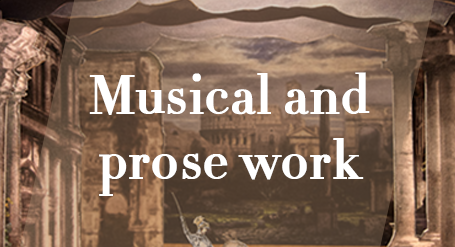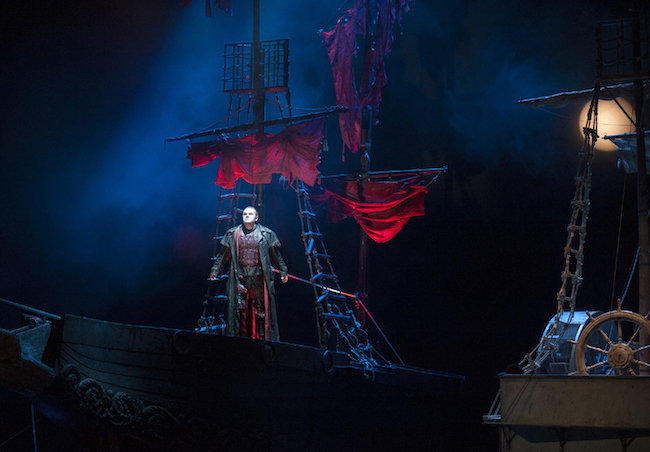
The musical work of Richard Wagner is composed of operas or “musical dramas” ranging from “Fairies” (Die Feen) to “Parsifal”. A detailed presentation of each of these major works is associated here with a set of thematic articles, placing them not only in the context of his personal life but also in his social, economic and cultural context. This section also includes all the musical works (excluding opera) and his literary work.
The Flying Dutchman, WWV63
Der Fliegende Holländer, WWV63
Romantic opera in three acts
Text and music by Richard Wagner,
after Heinrich Heine’s novel
The Memoirs of Mister von Schnabelewopski
(Aus den Memoiren des Herrn von Schnabelewopski)
Premiere:
2nd january 1843, Royal Theatre of the Court of Saxony, Dresden (Semperoper), led by the composer
Cast:
THE DUTCHMAN (bass-baritone)
DALAND, a Norwegian sea captain (bass)
SENTA, his daughter (soprano)
ERIC, a huntsman and Senta’s fiancé (tenor)
MARY, Senta’s nurse (contralto)
Daland’s steersman (tenor)
Norwegian sailors, the Dutchman’s crew, young women (chorus)
The action takes place in Norway, in 1650
Duration : 2hrs.15
![]()
Composed after the resounding success of Rienzi, the Last of the Tribunes (WWV 49), The Flying Dutchman (Der Fliegende Holländer, WWV 63) is the fourth opera created by Richard Wagner. It is nowadays perceived as the first of the operas attributed to the composer’s phase of maturity.
If we are to believe his autobiographical writings (and more particularly Mein Leben, where this episode is reported on several pages), the idea of setting the legend of The Flying Dutchman to music would have come to Wagner’s mind while, fleeing the creditors of Riga aboard the Thetis with his wife Minna, the composer made the disastrous North Sea crossing. The fright felt by the travelers during this journey would have made them glimpse in the swell the ghostly shadow of the spectral ship whose history had inspired among other poets Heinrich Heine.
Condemned to wander on the seas for eternity for having, according to legend, defied Satan, the Dutchman is now entitled to sail only once every seven years: on this unique occasion, he must try to conquer the heart of a woman. Only the absolute love of a woman who will vow eternal fidelity to him would free him from the curse.
Taking his inspiration from the fantastic atmosphere dear to the authors of the early XIXth century who like to revel in spectres, legends and crimes of passion, Richard Wagner however adapted his libretto in his own way and wove as early as 1839 the framework of an opera in three acts. (read more…)
If you wish to share further information about this article, please feel free to contact us !
